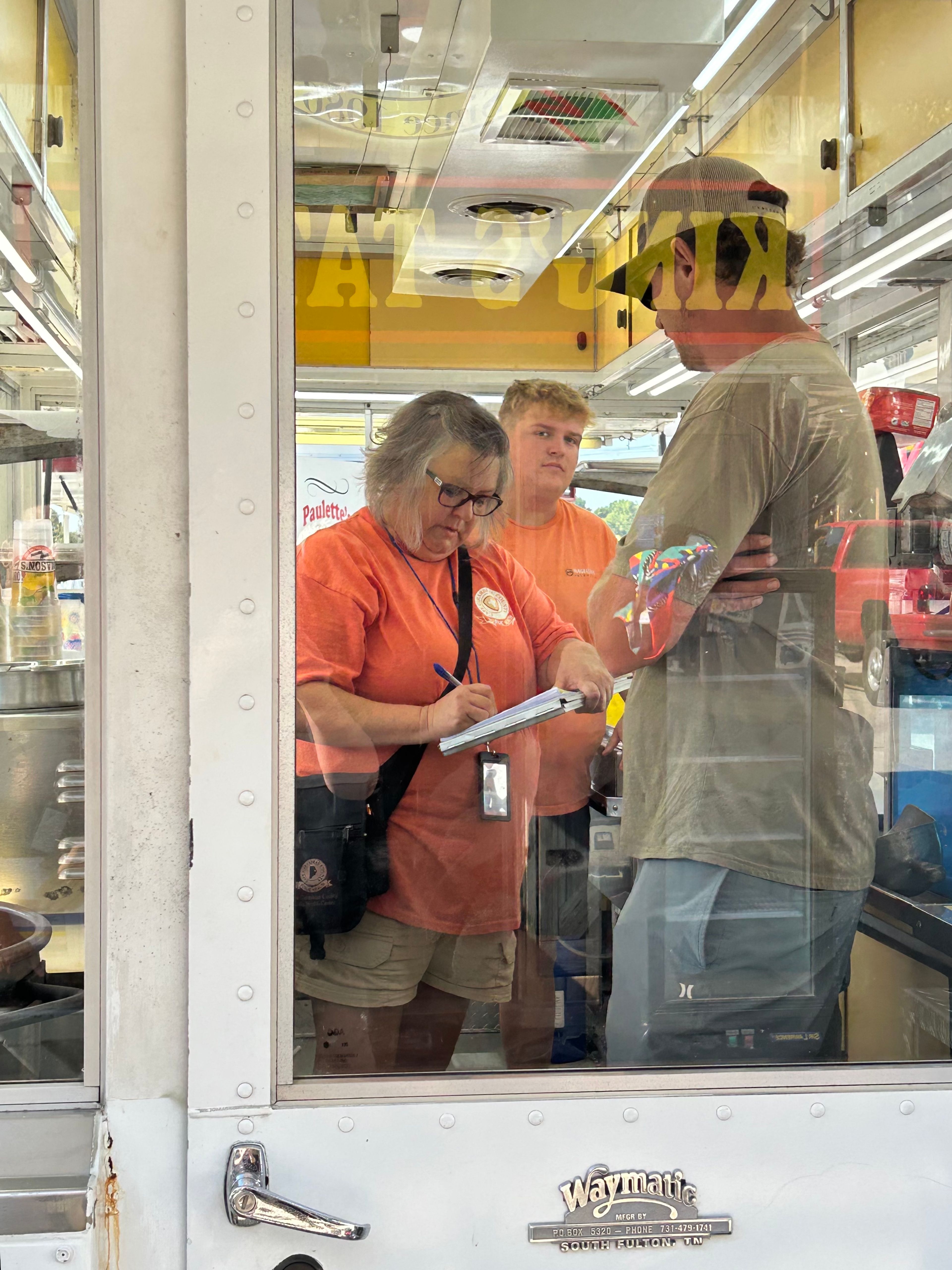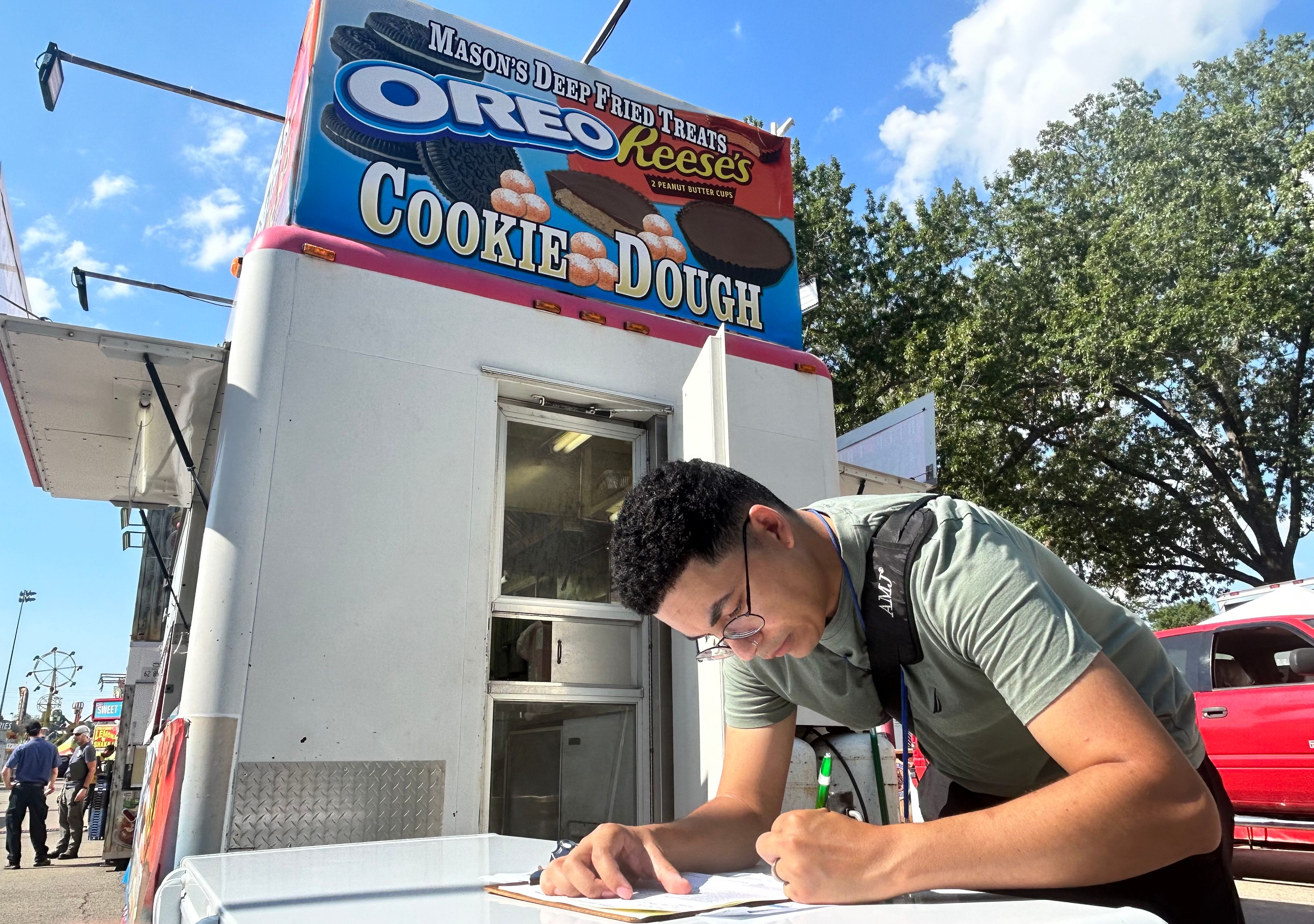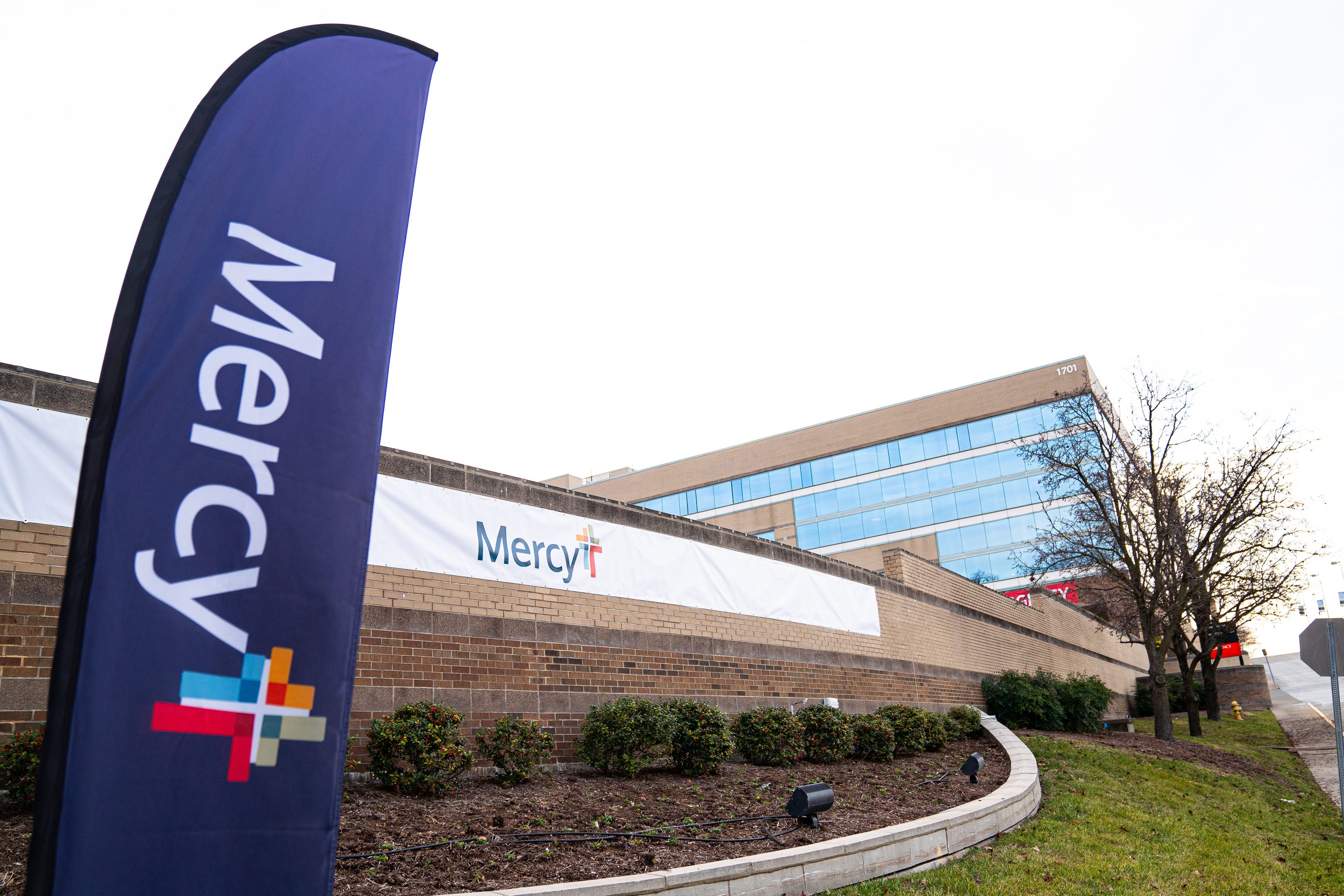Fair food safety: Public health inspectors working all week to ensure food is as safe as it is delicious
A team of public health inspectors work all week long at the SEMO District Fair to ensure food safety, inspecting everything from water sources to food temperatures.
If you’re a person who worries about food sanitation, especially at a place such as a county or district fair, the public health department would encourage you to relax and indulge.
While a menu of elephant ears and turkey legs might not be the healthiest items for your diet, the food at the fair should be safe to eat as each vendor is held to food safety standards.
Public health inspectors were busy Friday, Sept. 6, at the SEMO District Fair at Arena Park in Cape Girardeau, hopping in and out of food trailers, checking their lists.
Their jobs weren’t done Friday, either. Public health workers will work every day of the fair to make sure the facilities are clean and acceptable, per food regulations.
Inspectors look at the water sources, as many vendors bring their own water tanks. They inspect the insides of the food trailers for cleanliness and access to washing supplies. They inspect refrigerators. The inspectors also ensure the water and sewer discharge work as designed.
The inspections are intended to prevent a multitude of food-related illneses, such as salmonellosis and norovirus.
“So another thing we're looking for is they're keeping their hot foods hot, and their cold food cold. So anything cold has to be kept at 41 or below 41 degrees Fahrenheit,” said Natalie Govreau, assistant director of the Cape Girardeau County Public Health Center. “And once they cook something and they're hot-holding it, the temperature has to be 135 degrees or hotter. Or they have to use time as a standard. And if they use time, there's a certain period they have to go by, and they have to have a written plan, and they have to demonstrate how they're going to keep up with that. And then when we go in throughout the week we will obviously check that.”
Inspectors will also look for proper hand-washing, and that sinks and washing supplies are always available, and that food workers use gloves or tongs per regulations.
Govreau said many of the fair vendors are family members who travel from event to event. Many of their cooks and workers are experienced, but sometimes they hire locally, which requires some education before they begin serving food.
“We obviously understand it’s money for them, but we have a duty to keep the public safe. So the process is that we actually go out and do pre-opening inspections.”
The vendors pay a $30 permit and have to pass the inspections before they open. Once the pre-opening inspections are completed, they’re subject to many levels of inspection throughout the week, based on the types of food being cooked and served. Meat products, for example, require different cooking temperatures, so inspectors will check oven racks to make sure juices from one type of meat that require one temperature aren’t adversely affecting the safety of a different type of meat placed below. All meats have to come from a facility inspected by the USDA.
The communications with food vendors begin weeks before they arrive so there are no surprises.
“This is one of our largest events of the year,” Govreau said. “It is known around the office as Fair Week. We have four full-time environmentalists right now, and I’ll step in if I need to, but we will have a lot going on. So everybody will be on site that Friday to get everybody inspected. And then we send out two environmentalists each day to do spot checks, or mini-inspections.”
Govreau said they investigate every complaint that comes to the office, regardless whether it is a temporary vendor or a restaurant.
On Friday morning, environmentalists Anthony Mitchell and Amy Morris were going from vendor to vendor. Some of the vendors were ready when they arrived at 8:30 a.m.; others were still making preparations. They said they keep things light and allow the vendors to make necessary adjustments before they open. Some are as simple as the food worker hadn’t yet set out the soap on the sink.
Frank Cole, a worker for one of the vendors, said things run pretty smoothly at the SEMO District Fair, an event he’s worked for at least a decade. He said it’s one of the better and cleaner events on his company’s tour every fall. He said his company requires every worker to take training annually on safe food practices.
“Some fairs are better than others,” he said. "This one right here is pretty good. (The inspectors) really watch the staff. It’s good for the people who come and eat.”
The SEMO District Fair runs through Saturday, Sept. 14.
Connect with the Southeast Missourian Newsroom:
For corrections to this story or other insights for the editor, click here. To submit a letter to the editor, click here. To learn about the Southeast Missourian’s AI Policy, click here.












